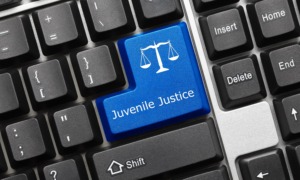The Food and Drug Administration’s Psychopharmacologic Drugs Advisory Committee will vote next week on whether to allow three psychotropic medications to be marketed as effective and acceptably safe for youths with certain conditions.
Doctors have been prescribing all three to children for years, and many of them are youths who are known to child welfare and juvenile justice systems. About 14 percent of youth in foster care are prescribed a psychotropic medication, according to a policy paper written in 2006 by the Institute for Juvenile Research at the University of Illinois at Chicago. And any committee vote of confidence is unlikely to curb what many believe to be an overreliance on psychotropics in dealing with troubled youths.
That a committee was asked to rule on the issue is itself a statement on the controversial nature of the issue. The FDA is not required to seek committee approval to accept a pharmaceutical company’s application.
“When an advisory committee is convened, it usually means the evidence is not so clear,” said David Cohen, a psychotherapist and professor at Florida International University. Committees are called in when “other issues need to be considered, or the consequences are so weighty.”
The three drugs up for discussion, their makers and their prescribed uses:
–Zyprexa, Eli Lilly: “for the acute treatment of manic or mixed episodes associated with bipolar I disorder and the acute treatment of schizophrenia in adolescents.” Lilly agreed to pay the U.S. government $1.4 billion to settle criminal and civil cases regarding its promotion of Zyprexa for use with the elderly and children. The drug’s side effects include significant weigh gain and diabetes. Zyprexa is one of the three drugs that was prescribed to Gabriel Myers, the 7-year-old Florida foster child who is believed to have committed suicide. Myers’ death has prompted the Florida Department of Children and Families to examine the use of psychotropic medication by children in the agency’s care.
–Seroquel, AstroZeneca, “for the acute treatment of schizophrenia in adolescents from 13 to 17 years of age, and the acute treatment of bipolar mania in children from 10 to 12 years of age and adolescents from 13 to 17 years of age.”
–Geodon, Pfizer, “for the acute treatment of manic or mixed episodes associated with bipolar disorder, with or without psychotic features in children and adolescents ages from 10 to 17 years of age.”
In November 2008, the FDA’s pediatric advisory committee surprised the agency when it unanimously rejected a proposal that the FDA routinely monitor Zyprexa and another drug, Risperdal. The meeting was supposed to be a routine review of the pediatric safety of the drugs.
Cohen would like to see this committee act in a similar manner. Medicaid agencies are leery of the costs associated with the drugs, he said, and “This hearing is a desperate attempt to legitimize” the use of these drugs on children, Cohen said. A favorable ruling for the drugs’ manufacturers “would take lot of heat off” of them.
Notice of the meeting is available here on the Federal Register website.































